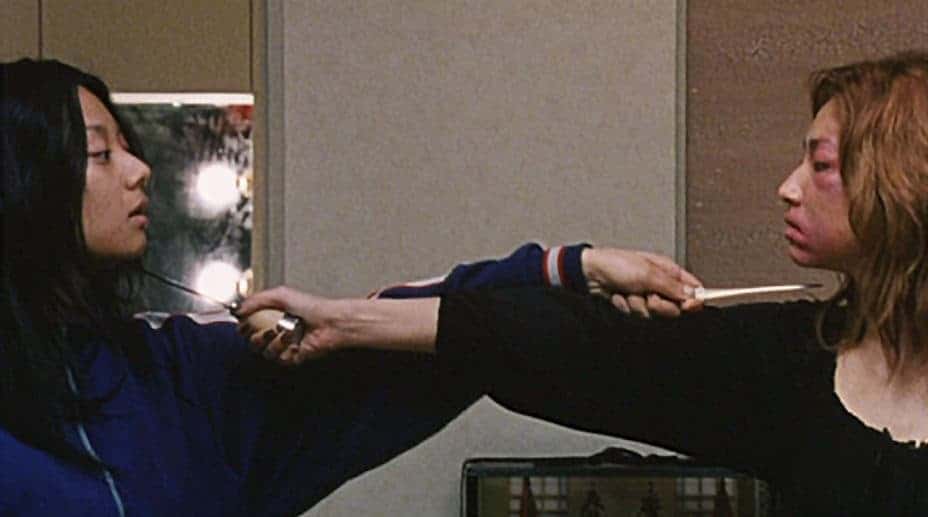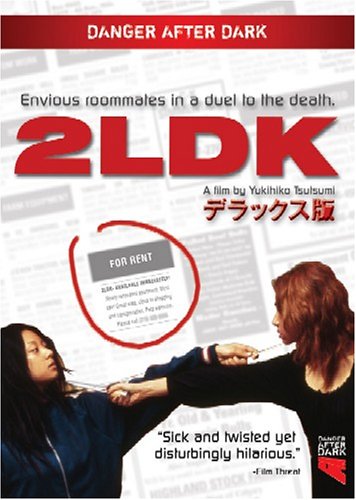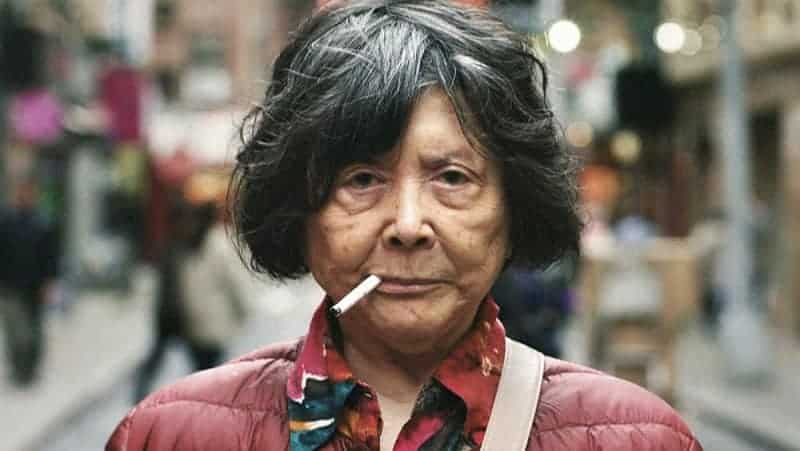In 2002, on a night in Berlin filled with alcohol, producer Shinya Kawai (The Ring), challenged directors Ryuhei Kitamura and Yukihiko Tsutsumi to a duel in filmmaking, with a number of peculiar rules:
1. The duration of the films ought to be 60 minutes, plus or minus 10 minutes.
2. The film could not be R rated.
3. The entire story was to be shot on a single set.
4. It could not have more than two characters
5. Kitamura was to cast male and Tsutsumi female protagonists
6. The movie was to be completed in a week, with an equal and miniscule budget
7. At least one of the characters was to die
The venture's name was Dual Project, and the two films that were created were “Aragami” and “2LDK”. The films were screened on successively, and, at the end of the screening, the spectators were asked to choose the movie they preferred. Unfortunately the result never became known (to me at least).
Buy This Title
2LDK is the Japanese acronym for an apartment with two separate bedrooms and a common living room, dining room and kitchen. In such an establishment live two actresses, Nozomi and Lana, both of whom have signed with the same agency and are currently competing for the same leading role in the movie “Yakuza Wives”. Moreover, they both believe that the role is set to launch their careers.
However, the differences between them are quite evident. Nozomi is a simple, demure girl from a small island, who came to Tokyo to improve her life, both socially and professionally. Lana, on the other hand, has the looks of a fashion model, is popular among men and is unscrupulous in achieving her goals. Furthermore, Nozomi is obsessed with cleanliness and order, and Lana is a slob. The only notion they seem to have in common is the fact that they both hate each other. However, they act in a civilized way, at least until a point they both erupt, thus resulting in absolute mayhem. In that fashion, as the story progresses, the tension grows and the yells becomes slaps, punches, fires and electrocution, duels with swords and even more, as the film transforms to a slapstick thriller.
Yukihiko Tsutsumi's script and direction are sublime, particularly considering the difficulty of the project. Undoubtedly, his biggest achievement is that he manages to analyze his characters to such an extent, in only 70 minutes. Equally accomplished is the ending that gives the term “tragic irony” an actual meaning.
Considering the limitations of the project, Satoru Karasawa's cinematography is truly great, as he manages to portray all these extreme action scenes in the space of a small apartment. The same applies to Nobuyuki Ito's editing, that manages to change the rhythm from the slow indie one in the first part to the extreme one in the second, with elaborateness.
Eiko Koike and Maho Nonami as Nozomi and Lana, respectively, are excellent in their parts, and in reality are the exact opposite of their actual personas, since Koike is the pop idol and Nonami the “genuine” actress. Their depiction of a variety of sentiments including calmness, irritation, rage, hysteria, and paranoia is one of the film's biggest assets. The film was shot non-stop, in order for Tsutsumi to make the deadline, and by the end of the shooting, both of them were suffering from a high fever. Tsutsumi used even that to his benefit, “taking advantage” of their situation during the fighting scenes, in order to depict the prostration of their characters.
“2LDK” is a true testament to the fact that great movies can be produced despite any circumstances.


















